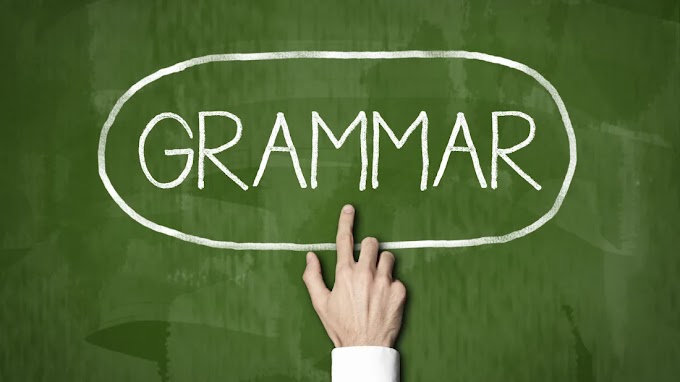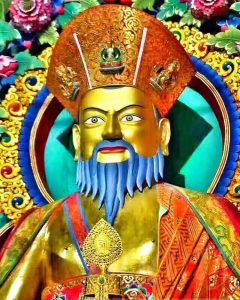Chapter TwoNAZISM in GERMANY-1918-1945
After the First World War, Germany faced lots
of problems like unemployment, economic instability, social downfalls and
cultural deviation. It experienced a period of instability. After the defeat in
the First World War, Kaiser William fled to Holland after appointing Prince Max
as Chancellor. Prince Max resigned and Frederick Ebert formed the government.
He became the first President of the Republic known as Weimer Republic because
it met at a palace called Weimer. (Berlin at that time was still torn by
political unrest). This new form of government lasted until 1933, till it was
destroyed by ‘HITLER’. There were two houses of parliament in legislature,
namely, Reichstag (lower house of parliament) and Reichstadt (upper house of
parliament). However, this new Weimer Constitution had some weaknesses and to
over throw the republic.
ü Dr. Wolfgang Kapp, a Prussian military officer,
launched a Coup d’ etat at Berlin in 1920 and brought the government into
crisis. The German army took no action because they had sympathy for this.
Since Weimer Republic government accepted the treaty of Versailles with all its
humiliation, it was only when the workers of Berlin called a general strike in
support of the Social Democratic government that the government regained
control.
ü In 1923, General Ludendorff attempted another
Coup d’ etat at Munich. Ludendorff was assisted by Hitler as yet unknown to
fame. Hitler was Austrian by birth. He organized a band of German Youth in
Munich and secretly worked for over-throwing the Weimer Republic government.
Hitler’s organization came to be known as National cSocialist Party (NAZIS)
which stood extreme Nationalistic combined with Socialistic philosophy.
Ludendorff and Hitler were arrested and Hitler was imprisoned for five years
and that time he wrote his famous book “MEIN KAMPF”
Problems faced by Weimar Republic and Fredrik:
The First World War was a curse for Germany.
After the defeat in the WWI, the Kaiser William fled to Holland and Frederick
Ebert formed the Republic government known as Weimer Republic. From the very
beginning, the Weimer Republic faced number of problems.
·
Accepted the Treaty of Versailles
Germany had accepted the humiliating and
unpopular Versailles Treaty. It was a dictated peace for Germany. The Treaty of
Versailles was known as dictated peace for Germany because the Germans were not
allowed into the discussions at Versailles. They were simply presented with the
terms and told to sign. The Germans had little choice but to sign the treaty,
though they objected strongly.
·
Economic Problem
Germany faced worst economic crisis; they were
not in a position to pay the compensations to the Allied powers. When Germany
became a defaulter in paying off the loans, Belgium and France occupied Ruhr
region which was the German coal and iron industry. Such instabilities largely
contributed for the cause of economic problems in Germany from 1929 to 1933.
Thus, the middle class people and the working class suffered the most.
·
Weak Parliamentary System
Because of the weak parliamentary system, it
led to the outbreak of violence and attempts to overthrow the republic. In 1920
Dr. Wolfgang Kapp executed a Coup at Berlin and put Government to fight. In
1923, General Ludendorff attempted another Coup at Munich to take control of
the Bavarian State Government.
·
Payment of huge war Reparation
The most important problem was the payment of
huge reparation to the Allies. The Peace Conference referred the matter to a
Commission in 1921 fixed the total German indemnity at £ 6,600,000,000(sixty
six hundred million). It was beyond their capacity to pay. In 1923, Germany
became a defaulter as a result of which French and Belgium troops occupied the
Ruhr region, the very centre of Germany’s coal and iron industry. German
industry was ruined, the value of Mark came to almost nothing, and inflation
gripped the whole country.
·
Suspension of All Loans
Due to Great Depression of 1929 compelled
America to suspend all loans. This was a great shock for Germany and in 1932
Germany declared her inability to pay war reparation any longer. German’s
economic condition became worst, unemployment continued to rise, middle class
and working class peoples suffered most. Thus, by the end of the 1932, the
Weimer Republic was on the verge of collapse.
Q. Why did the Weimar Republic Collapse?
1 -Political Factor
ü For accepting the humiliating treaty of
Versailles
·
The Germans were not happy with Weimar
Republic for accepting the Treaty of Versailles
ü Blamed the Government
ü The
Germans never respected the government for accepting the dictated treaty and
they thought that they were not defeated in the war but stabbed in the back by
accepting the humiliating treaty.
ü Weakness of new Parliamentary system of
Government
·
The parliamentary system was very weak as
there were almost eight parties and no party got majority seats to run the
government.
ü Lack of support
·
The Weimar republic never got majority support
and the communist tried to take over the government
·
The lack of cooperation among different
parties led to the formation of private army for their own security
·
The government was not able to stop the spread
of communism and they asked the help of these private armies which exposed the
weakness of the government.
2 Outbreak of Violence
ü The Sparta crisis
·
In 1919, the communist wing under the
leadership of Karl Liebknecht and Rosa Luxemberg tried to remove the government
·
However the rising was crushed by Freikorps
–(private armies formed by ex army officer who was anti communist) which
exposed the weakness of the government
ü The kapp Putsch of March 1920
·
When the government tried to disband the
Freikorps in 1920, the Putsch –rising/coup was started by the Freikorps and
they declared Dr.Wolfgang Kapp as the chancellor of Germany
·
However, Kapp resigned and the Freikorps
joined Hitler’s army and became hostile to the government
ü A series of political assassination
·
These political assassinations were carried
out by the Ex Freikops
·
When the government tried to suppress such
act, the right wing opposed and thus, government could not solve these problems
which contributed to the collapse of the Weimar Republic
ü The Beer Hall Putsch of 1923
·
An attempt was made by Hitler and General
Ludendorff in 1923, at Munich to overthrow the government but the attempt was
crushed by the government and Hitler was arrested.
·
As the coup was started from the Beer Hall in
Munich, so Hitler announced his National Revolution as Beer Hall Putsch
ü Expansion of Private Armies
·
Increase of unemployment rate has resulted in
the expansion of private armies and there was street fight between Nazis and
Communist
·
The government could not do anything to stop
such acts which further exposed the weakness of the government and led to the
collapse.
3Economic Problems
·
The government failed to solve the economic
problems which made the Weimar Republic unpopular. The following economic
problems led to the collapse of the Weimar Republic:
·
Germany had to pay huge war reparation and by
1919, she has become bankruptcy
·
The un employment rate increased and many
factories were closed
·
Ruhr region was occupied by France and the
value of German currency went down
·
Due to great economic depression of 1929,
American stopped the war loan which further worsened the German economic
conditions.
RISE OF HITLER TO THE POWER
Adolf Hitler was Austrian by birth. He took
part in the First World War and won a medal for his bravery. He was unemployed
for some time after the war and even worked as a ‘House decorator’. Later he
was encouraged by Mussolini’s success in Italy; he attempted a Coup d’etat in
1923. He was caught and imprisoned for five years, during that time he wrote
his autobiography-“MEIN KAMPF” (My
Struggle). – It was sort of Nazi Bible in which he explained his political
ideas of making Germany a great State and the superiority of the race (Aryans)
Ø Weakness of Weimer Republic
Ø Unstable Economic problem
Ø Hitler denounced the whole treaty of
Versailles which was so unpopular with most Germans. He promised to build
Germany into a great power again. He demanded the union of all Germans in a
Greater Germany.
Ø Hitler himself had extraordinary political
abilities. He possessed tremendous energy and will-power and a remarkable gift
for public speaking which enabled him to put forward his idea with great
emotional force. (Good Oratory Skills)
Ø His Autobiography ‘Mein Kampf’ clearly explained his political ideas. It was sort of
Bible of Nazi. It also preached the supremacy of the State and the superiority
of the Nordic race.
Ø In the election of 1932, the Nazi Party and
the Communists increased their strength in the Reichstag. The Communists
refused to cooperate with the Nazis. Therefore, no stable government could be
established. In a desperate move, the German President Hindenburg appointed
Hitler as the new Chancellor (PM) in 1933. He was then, became the head of the
Coalition government and aimed to gain all powers of the State.
Ø Hitler ordered for the re-election to the
Reichstag with the hope of making Communist unpopular. At the eve of election
in 1933, he secretly ordered his followers to burn down the Reichstag Building
and blamed the Communists for this incidence. After the death of President
Hindenburg, 1934, Hitler became the President as well as the Chancellor. The
Reichstag gave him the power to become a Dictator. He eliminated his opponents
with the help of his Secret Police “Gestapo”.
THE NAZI STATE FROM 1933 ONWARDS
Hitler
became the ruler of Germany after Hindenburg died in 1934. Hitler ruled Germany
with unique Nazi principles.
·
THE
ENABLING LAW of 23 March, 1933
This
law passed by Hitler was regarded as the Fundamental Law of Hitler or Hitler’s
Regime. And this law gave him dictatorial powers to introduce law without the
approval of the Reichstag for four years. Nazi could ignore Constitutions and
sign agreement with foreign countries. All laws were drafted by the chancellor
would function once they are published. In short, it means to say that Hitler
can rule the country by decree.
·
End of
Federal State
Hitler
took away the autonomy of the federal state of Germany with its unification
under a centralized system. He abolished all the separate provincial government
and they were deprived of their sovereign rights. Thus, Germany was totally
centralizes under Hitler.
·
Ban on
all Political Parties
All
parties except the National Societies were banned. Communist were solely blamed
for setting the Reichstag on fire and were deprived from contesting election.
Both the Jews and the Communist were the suspected enemies of the state and
they were subjected to cruel persecution.
·
Organization
of Secret Police
Gestapo
was the state police in order to suppress the opposition. The leader of the
Gestapo was Himmler and this secret police organization became the terror to
the people. All the enemies and critics of Hitler were executed.
On 30th
June, 1934, Earnest Rohm became an embarrassment to the Hitler. Rohm wanted his
brown shirt to merge with the Richswer generals and became the general himself.
When Rohm persisted in his demands, Hitler made his secret police (Gestapo)
under Himmler to execute Rohm and his followers and at least 400 people to be
murdered on that fateful night of 30th June, 1934. This incident is
known as Rohm Purge or the Night of Long
Knives or Bloody Saturday
·
Hitler
became the supreme power
The
commander in chief of the German Army General Fritch and Field Marshall
Bloomberg were dismissed, Hitler them became supreme commander of German Armed
forces and made to take oath of allegiance to Hitler.
·
Nazification
of Germany
ü Nazi
control was established on every aspect of the individual’s life
ü Education
system was also controlled and Students were taught the Nazi ideas
ü Books
were rewritten on the line of Nazi ideas
ü History
was distorted and new history was written on the Nazi Ideas
ü Teachers,
Lectures, Lawyers and professor were directed not to speak against the Nazis
ü Every
boy and girl has to het enrolled as a member of youth and league of German
Maidens after the age of 14 and were taught to obey and respect the Nazi ideas
and principle
·
Suppression
of Trade Union
ü Trade
union likely to show resistance were all abolished
ü Their
funds were confiscated and leaders were arrested
ü Trade
unions were replaced by the German Labor Front and made the entire worker the
members of the labor front.
ü The
strikes were not allowed and incentives were promised
·
Censorship
of Media
ü Ministry
of propaganda controlled all Medias and communications system.
ü The
radio, books, film, theatre, newspaper,. Magazines, music and even arts were
kept under strict vigilance.
ü Writers,
Artist, Scholars were harassed if they expressed against Nazism.
·
Strain
Relation with the Church
ü The
Roman Catholics and protestant churches were the likely source of the
opposition
ü When
the Catholics protested, the government closed down the catholic schools
ü Hitler
arrested thousands of priest and nuns were sent to different concentration
camps
ü Others
were arrested and forced to take an take an oath of obedience to the Fuhrer
·
Anti-
Semitic (Anti Jewish)
The
worst aspect of Nazi system was Hitler’s anti Semitic policy. Hitler used the
Jews as scapegoats for everything, the humiliation at Versailles, the
depression, the unemployment and the communism. To suppress the Jews, Hitler
passed the law called Nuremburg Law in 1935. By this law
ü The
Jews were deprived of their German citizenship
ü Forbade
them to marry non Jews to protect and preserve the purity of the Aryan Race
ü Jews
property was burnt and attacked, shops were looted
ü Thousands
of Jews were removed from their jobs.
ü The
worst of the Nazis crimes against the humans was the HOLOCAUST
·
Economic
Life
The
country’s economic life was closely organized with two aims
1. To
remove unemployment
2. To make
Germany a self sufficient state by boosting exports and reducing imports
Actions taken
ü Factories
were closed down if products were not required
ü Nutrition
Law was passed in 1933 to all the farmers and the landlords to standard the
quality and quantity of the products
ü Artificial
processes were introduced to make synthetic rubber, wools and petrol to reduce
dependence on foreign countries.
Achievements of Hitler/ Hitler’s popularity
ü He
successfully solved the unemployment problems
ü Provided
full support to the workers
ü Achieved
self sufficiency in food production
ü Hitler
banned trade union and replaced it by German Labor Front
ü Violated
the treaty of Versailles by Re- Armament (1934) and Conscription (1935) of the
army to its full strength
ü Improved
the economic condition of the country
Comparison of the Fascist and Nazi system
|
Fascism
|
Nazism
|
|
·
Fascism not as effective as Nazism. The
policies of Mussolini in Italy were not deeply rooted
·
The fascist state had a problem regarding
different coalition government
·
The Italian system was inefficient as
Mussolini failed to attract sections of society comprising labors,
businessman and church
·
Mussolini was more successful in his
religious policy as per the Lateran treaty of 1929, he had accepted catholism
as the official state religion and even the religious instructions were made compulsory
in the school
|
·
It was effective as well as deeply rooted.
Hitler was good for Germany and policy implemented was right
·
Nazism had a problem with the Jews for
accepting the humiliating Treaty of Versailles
·
Hitler was very efficient and was able to attract
all sections of society, he was able to make Germany a great power, self-sufficient
and removed all unemployment problem
·
Hitler was not much successful in his
religious policy as he considered the Jews as a great enemy for the defeat of
German, having accepted the treaty of Versailles. And also sent thousands of
priests to the different concentration camp.
|








0 Comments